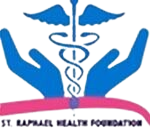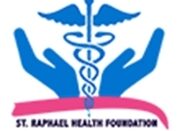Sexual and Reproductive Health Rights (SRHR) are fundamental to human well-being. They encompass the ability to decide freely and responsibly on the number, timing, and spacing of children, to have information and access to safe and effective contraception, and to attain the highest standard of sexual and reproductive health. In Uganda, however, significant challenges impede the realization of these rights, particularly for women and adolescents.
Limited Access and High Risks
Uganda grapples with a high unmet need for family planning. According to the Uganda Demographic and Health Survey (UDHS) 2018 [Uganda Bureau of Statistics (UBOS) and ICF International. 2019. Uganda Demographic and Health Survey 2018. Rockville, Maryland, USA: UBOS and ICF], an estimated 24% of married women have an unmet need for contraception. This limited access translates to high rates of unintended pregnancies. The UDHS 2018 further reports that 51% of pregnancies are unintended, with a significant portion occurring among adolescents. These unintended pregnancies often lead to unsafe abortions, a major public health concern. The World Health Organization (WHO) estimates that unsafe abortions contribute to approximately 33% of maternal deaths in Uganda [WHO. 2016. Trends in maternal mortality 2000-2015: Estimates from WHO, UNICEF, UNFPA, World Bank Group and UN Population Division. Geneva, Switzerland: WHO].
Beyond the Numbers: The Human Cost
The statistics paint a grim picture, but the true impact goes beyond numbers. Unintended pregnancies can disrupt education and economic opportunities, particularly for young girls. Unsafe abortions cause physical and emotional trauma, and in the worst-case scenario, can lead to death. Furthermore, limited access to SRHR services can exacerbate gender inequality, as women often lack control over their bodies and reproductive choices.
The Need for Intervention
The consequences of limited access to SRHR services are far-reaching. They contribute to maternal mortality, morbidity, and perpetuate the cycle of poverty. Investing in SRHR is not just a human rights imperative, but also a sound economic strategy. Studies by the Guttmacher Institute have shown that for every $1 invested in family planning, there is a return of $3 to $6 in economic benefits [Guttmacher Institute. 2017. Adding It Up: Investing in Contraception and Abortion Reduces Unintended Pregnancy and Associated Costs]. Empowered women are more likely to participate in the workforce, contribute to economic growth, and invest in their children’s education, creating a ripple effect of positive outcomes for generations to come.
St. Raphael Health Foundation Effective Interventions: Building Blocks for Change
Fortunately, there are straightforward interventions that can significantly improve SRHR outcomes in Uganda. These include:
- Expanding access to family planning services: This involves increasing the availability of a wide range of contraceptive methods at all levels of the healthcare system, including health facilities, drug shops, and community outreach programs. Training and empowering pharmacists to dispense contraceptives can further increase access, particularly in rural areas.
- Strengthening sexuality education: Comprehensive sexuality education for adolescents, delivered in a safe and age-appropriate manner, empowers young people to make informed decisions about their sexual and reproductive health. This education should cover topics like anatomy, contraception, sexually transmitted infections (STIs), and healthy relationships.
- Promoting gender equality: Empowering women through education and economic opportunities allows them to make informed choices about their bodies and families. This can be achieved through targeted programs that promote girls’ education, skills training, and access to financial resources.
- Addressing social stigma: Combating cultural and religious beliefs that hinder access to SRHR services is crucial for creating a supportive environment. Community engagement campaigns and partnerships with religious leaders can help address misinformation and promote a rights-based approach to sexual and reproductive health.
Conclusion: A Collective Effort for a Brighter Future
Securing SRHR in Uganda is not just about individual rights; it’s about national development. By implementing these simple yet effective interventions, Uganda can empower its citizens, improve public health outcomes, and pave the way for a brighter future. This requires a collective effort from the government, civil society organizations, healthcare providers, and communities working together to ensure that everyone in Uganda has the knowledge, resources, and agency to make informed choices about their sexual and reproductive health.


